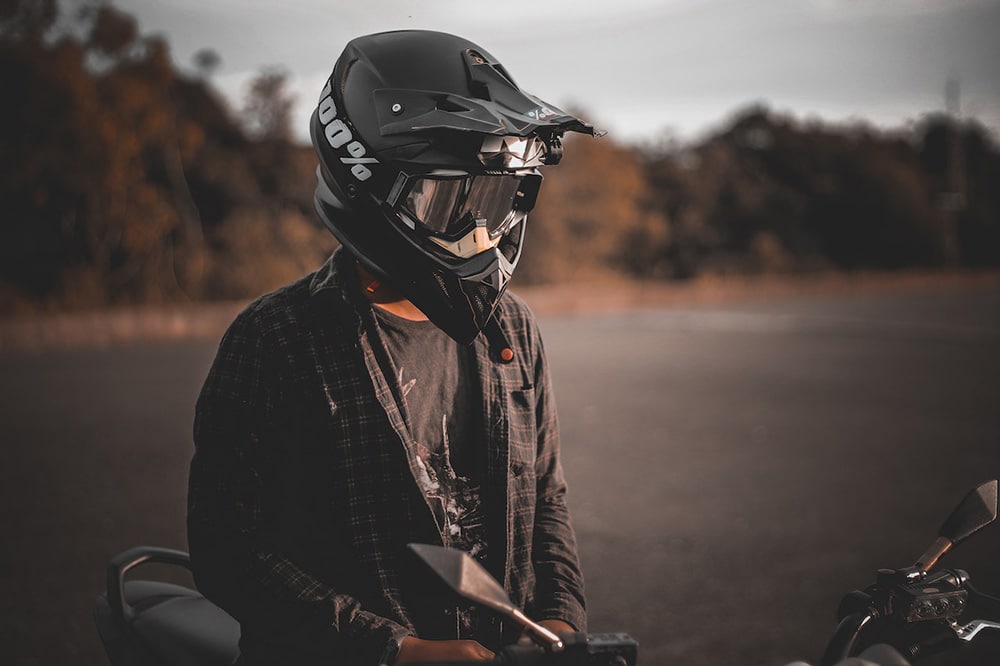Illinois Motorcycle Helmet Laws
The safety benefits of wearing a motorcycle helmet are well-established, and in most places in the United States, there are laws that require many motorcyclists to wear them. Every state in the country has the right to set its own laws regarding motorcycle helmets, so anyone who has recently moved to Illinois or who is traveling through the Prairie State might not be familiar with the legal requirements here.
The motorcycle accident attorneys at Krzak Rundio Gorman, Injury Attorneys want everyone to be safe when sharing the road in Illinois. In this article, we’ll detail Illinois motorcycle helmet laws, the benefits of wearing a helmet, and whether you should consider wearing additional motorcycle safety gear.
If you were involved in a motorcycle crash while not wearing a helmet and are unsure if you can seek compensation for your injuries, we are here to help. We offer free case evaluations to injury victims, so do not hesitate to contact us for any additional information or help in filing a motorcycle accident claim.
What Are Illinois Motorcycle Helmet Laws?
Illinois is one of only three states that does not have any type of motorcycle helmet law. Anyone of any age can ride a motorcycle without a helmet when traveling on Illinois roads.
However, just because there is no law requiring motorcyclists to wear a helmet does not mean that it is safe to do so. Krzak Rundio Gorman, Injury Attorneys highly recommends wearing a helmet every time you are on a motorcycle, regardless of what the law requires.
Do Other States Require Motorcycle Riders To Wear Helmets?
Illinois shares a land border with five states: Wisconsin, Iowa, Missouri, Kentucky, and Indiana. A sixth state—Michigan—shares a water boundary with our state. If you are leaving Illinois, be aware of the following helmet laws that apply in our neighboring states:
- Wisconsin – Motorcyclists aged 17 and younger are required to wear a helmet when riding a motorcycle. No helmets are required on mopeds regardless of age.
- Iowa – There are no state laws requiring motorcyclists to wear helmets.
- Missouri – Motorcyclists aged 25 and younger must wear a helmet when riding a motorcycle. No helmets are required on motorized bicycles with a maximum speed of 30 mph regardless of age.
- Kentucky – Motorcyclists aged 20 and younger must wear a helmet when riding a motorcycle. No helmets are required on mopeds regardless of age.
- Indiana – Motorcyclists aged 17 and younger are required to wear a helmet when riding a motorcycle.
- Michigan – Motorcyclists aged 20 and younger are required to wear a helmet when riding a motorcycle. No helmets are required on mopeds regardless of age.
If you choose not to wear a helmet when riding a motorcycle in Illinois, you must be aware of other states’ laws when traveling interstate. Ignorance of another state’s laws is not a sufficient excuse for not wearing a helmet when you are legally required to do so.
What Are the Benefits of Wearing a Motorcycle Helmet?
While you are not required by law to wear a helmet when riding a motorcycle in Illinois, there are many benefits to choosing to wear one anyway. Here is why we recommend wearing a helmet regardless of legal requirements:
- Motorcycle helmets reduce the risk of death by 42%
- Motorcycle helmets reduce the risk of serious head injury by 69%
- Motorcycle helmets provide protection from adverse weather conditions
- Motorcycle helmets reduce wind noise
- Motorcycle helmets protect the face from debris and insects
Perhaps the biggest benefit of wearing a motorcycle helmet is the lowered risk of head injury and death in a collision. Motorcyclists are at a profound disadvantage in a crash, as they lack the protections afforded to passengers of larger motor vehicles, including air bags, seat belts, and the vehicle’s metal frame. A helmet is important in protecting the head in a motorcycle collision.
A helmet can also make it safer to operate a motorcycle. Vision and hearing disturbances are common among riders who do not wear helmets. Debris, insects, hair, and the sheer force of air rushing against one’s eyes can alter a rider’s ability to see clearly. A helmet fitted with a visor can limit visual impedances while riding.
Similarly, a well-fitted helmet also affords hearing protection by reducing the volume of wind noise. Not only can wind noise be a dangerous distraction and cause you to not hear another nearby vehicle or problem, but it can also be painful and may lead to long-term hearing loss.
How To Choose a Motorcycle Helmet
Not every motorcycle helmet is created the same. When selecting a helmet, you must also be aware of your own unique head shape and size. Here is how you can choose a safe, properly fitting motorcycle helmet:
- Determine your head shape – Most people have a round or oval-shaped Have a friend or a sales associate help you determine your head shape by looking at your head from the top. Remember, your head shape is not determined by the shape of your face, so you cannot determine this alone by looking in a mirror.
- Determine your size – Using a measuring tape, measure around the thickest part of your head. If you do not have a measuring tape or are unsure how to correctly measure your head, ask a sales associate at a motorcycle accessories store to help.
- Select a style – In most cases, a helmet with a built-in, full-face visor will provide the best all-around protection.
- Look for the DOT label – All motorcycle helmets that are sold within the United States must meet federal safety standards and be labeled with a DOT certification label. If a helmet does not have a DOT label on the back of the helmet, do not purchase it.
Never purchase a motorcycle helmet secondhand. When purchasing a used motorcycle helmet, you cannot be certain whether it has suffered any damage, been involved in an accident, or even how old it is.
More Motorcycle Safety Gear To Keep You Safe
Your head is not the only body part at risk in an accident. Additional safety gear that will keep you safe in the event of a motorcycle accident includes:
- Eye protection if you’re wearing an open-face helmet
- A jacket, long pants, and gloves made of durable, abrasion-resistant material
- Boots that cover your ankles and have non-skid soles
You may also choose to purchase additional protective gear for cold and rainy weather, as exposure to the elements can be dangerous.
Were You Injured in a Motorcycle Helmet?
Illinois state law applies comparative negligence rules for injury victims seeking to recover compensation for their damages. So long as you are less than 51% responsible for your damages, you can seek compensation in a personal injury claim. However, your compensation will be reduced by your own percentage of fault.
Although Illinois motorcycle helmet laws do not require motorcyclists to wear helmets, insurance companies often attempt to argue that not wearing a helmet amounts to negligence. This means that a motorcyclist hit by another driver could see their compensation reduced or even denied altogether by an insurance company.
If you were injured in a motorcycle accident, whether you were wearing a motorcycle helmet at the time of the collision may be a key part of settlement negotiations.
Do not allow the insurance company to bully you into accepting anything less than what you are owed for your injuries. Contact Krzak Rundio Gorman, Injury Attorneys today to learn about your rights in a motorcycle accident claim.











